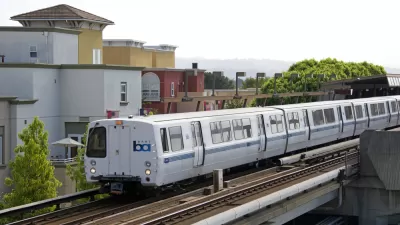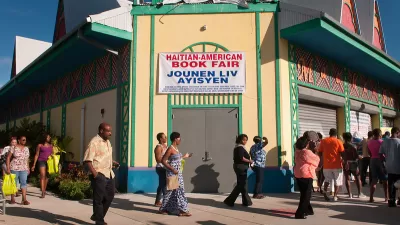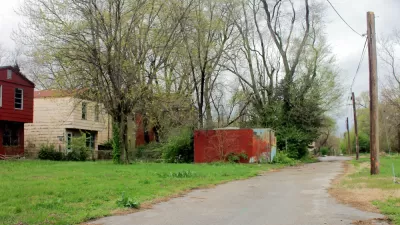Recent analysis identifies nearly 200 U.S. neighborhoods that have achieved the highly-sought-after goal of increasing the prosperity of residents without displacing the existing community.

Nearly 200 U.S. neighborhoods defined by concentrated poverty have reduced poverty without displacing current residents—showing that investments in neighborhoods are possible without causing displacement.
The findings come from the “Reducing poverty without community displacement: Indicators of inclusive prosperity in U.S. neighborhoods” report written by Rohit Acharya and Rhett Morris for the Brooking Institution. Other key findings from the report include evidence of inclusive prosperity as a hallmark of these neighborhoods: better-than-the-national-average retention of local residents alongside increasing property values and small business activity.
The research findings greatly expand the number of case studies available of low-income neighborhoods allowing investment without displacing the community. Fear of gentrification is often cited as a reason for opposing investment in vulnerable communities—but these findings suggest that investment without displacement is possible.
The report also identified eight indicators of neighborhoods achieving inclusive prosperity. External indicators, from the environment around the neighborhood, include positive economic growth, lower homicide rates, and low risk of displacement. Five internal indicators, which show the prosperity of residents within the neighborhood, include higher rates of homeownership, lower residential vacancy, increased housing density, greater self-employment, and the presence of community organizations.
Previous Planetizen coverage of the connection between increased levels of investment and displacement:
- Is Urban Revitalization Possible Without Displacement and Gentrification? (June 2014)
- The False Choice in the Gentrification Debate (October 2014)
- Surveying the Academic Findings about Gentrification and Displacement (September 2015)
- Researchers Find a Model of Redevelopment Without Displacement (April 2018)
- Watch: 'Revitalization Without Gentrification' (May 2019)
- Revitalization Without Displacement: A New Model From Miami (October 2020)
- Who’s Afraid of Gentrification? (June 2022)
FULL STORY: Reducing poverty without community displacement: Indicators of inclusive prosperity in U.S. neighborhoods

Alabama: Trump Terminates Settlements for Black Communities Harmed By Raw Sewage
Trump deemed the landmark civil rights agreement “illegal DEI and environmental justice policy.”

Study: Maui’s Plan to Convert Vacation Rentals to Long-Term Housing Could Cause Nearly $1 Billion Economic Loss
The plan would reduce visitor accommodation by 25% resulting in 1,900 jobs lost.

Planetizen Federal Action Tracker
A weekly monitor of how Trump’s orders and actions are impacting planners and planning in America.

Waymo Gets Permission to Map SF’s Market Street
If allowed to operate on the traffic-restricted street, Waymo’s autonomous taxis would have a leg up over ride-hailing competitors — and counter the city’s efforts to grow bike and pedestrian on the thoroughfare.

Parklet Symposium Highlights the Success of Shared Spaces
Parklets got a boost during the Covid-19 pandemic, when the concept was translated to outdoor dining programs that offered restaurants a lifeline during the shutdown.

Federal Homelessness Agency Places Entire Staff on Leave
The U.S. Interagency Council on Homelessness is the only federal agency dedicated to preventing and ending homelessness.
Urban Design for Planners 1: Software Tools
This six-course series explores essential urban design concepts using open source software and equips planners with the tools they need to participate fully in the urban design process.
Planning for Universal Design
Learn the tools for implementing Universal Design in planning regulations.
Caltrans
Smith Gee Studio
Institute for Housing and Urban Development Studies (IHS)
City of Grandview
Harvard GSD Executive Education
Toledo-Lucas County Plan Commissions
Salt Lake City
NYU Wagner Graduate School of Public Service





























